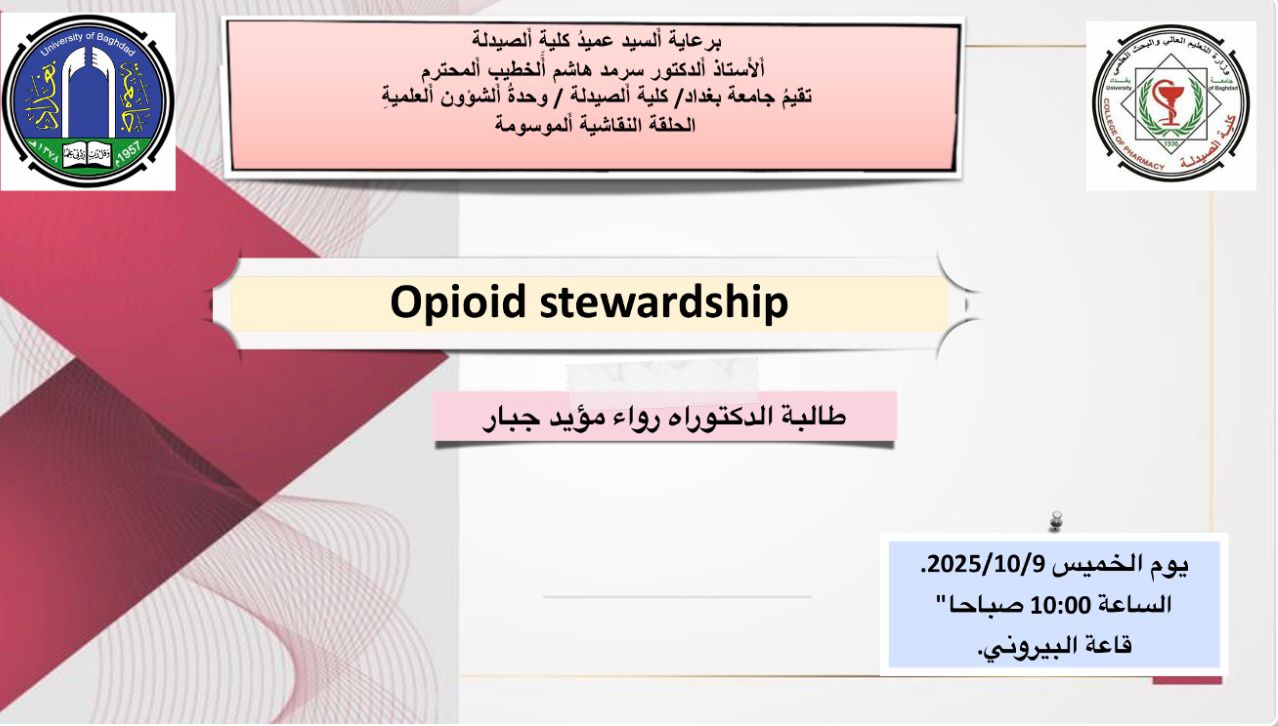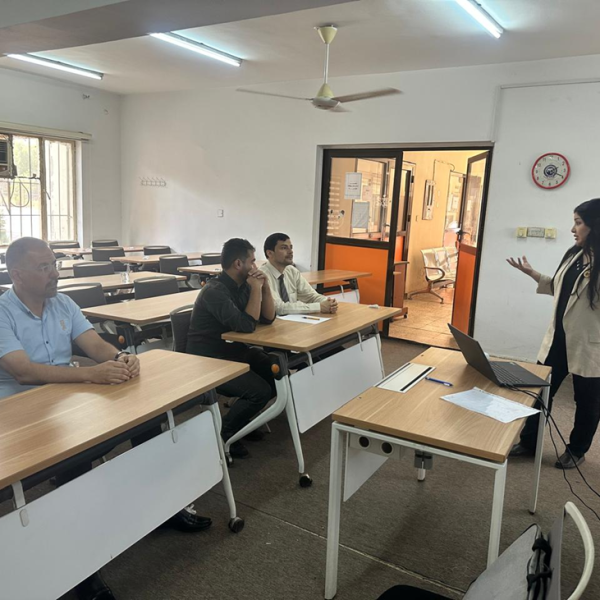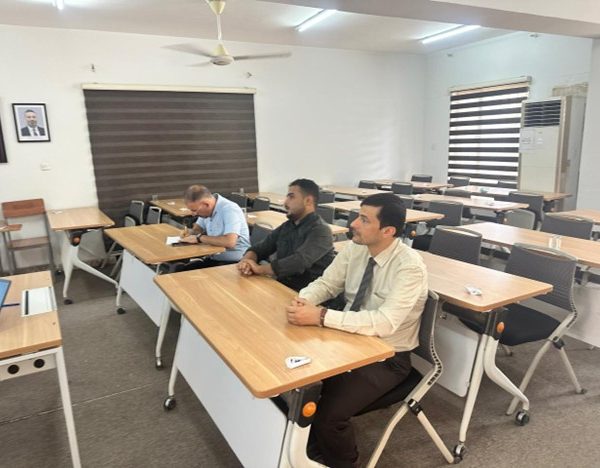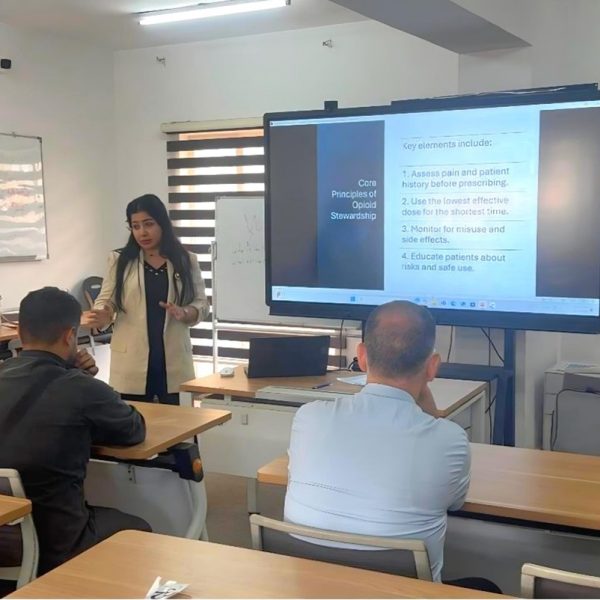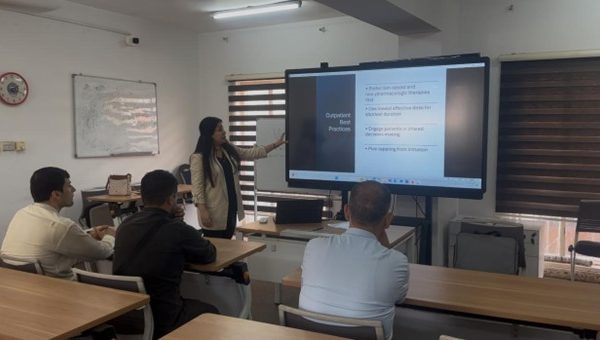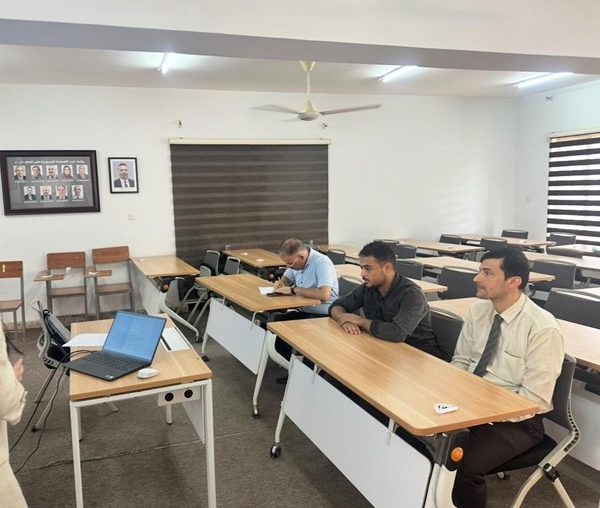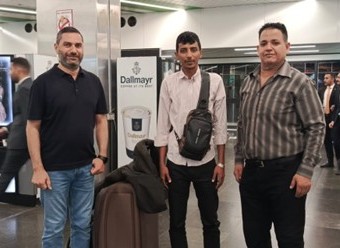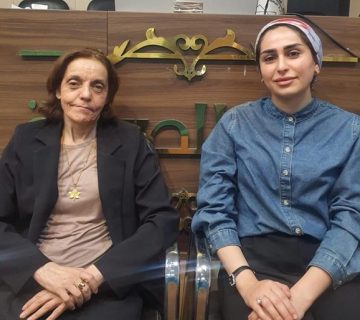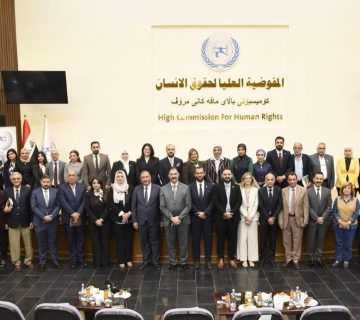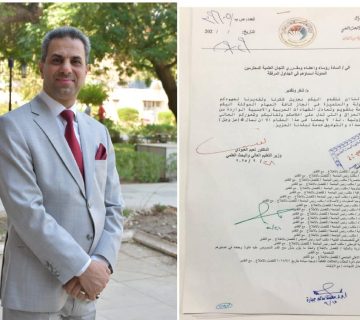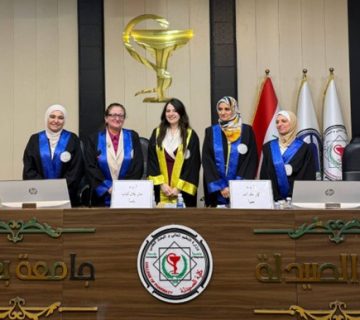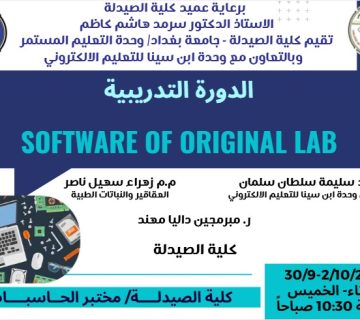Under the supervision of the Dean of the College of Pharmacy, Professor Dr. Sarmed H. Kadhem Al-Khateeb, the Scientific Affairs Unit at the College of Pharmacy/ University of Baghdad, organized an in-person workshop entitled “Opioid stewardship”, delivered by Pharmacist Rawaa Muayad Jabbar, a PhD student in the Clinical Pharmacy Department.
The workshop aimed to raise awareness about the concept of opioid use supervision by explaining the fundamental principles for the safe and effective use of opioid analgesics, reducing the risks of addiction and adverse effects, and emphasizing the pharmacist’s role in optimizing opioid prescribing and dispensing practices.
The workshop covered several key topics, including: the definition and importance of opioid supervision in improving care quality and reducing misuse, the objectives and core principles of supervision programs, such as improving pain control and minimizing complications, components of an effective program, including leadership, policies, training, and monitoring, best clinical practices for both outpatient and inpatient (surgical and hospitalized) opioid use, risk assessment, monitoring, and gradual dose tapering, prevention of diversion and misuse through patient education and safe disposal of excess medications and practical challenges and solutions for implementing supervision programs, along with mechanisms for continuous evaluation of outcomes.
The workshop concluded that implementing opioid supervision programs is a key step toward achieving a balance between pain reliefs and minimizing opioid-related harm. It also highlighted the importance of collaboration among healthcare professionals and the need to integrate pharmaceutical and clinical education with the principles of medication stewardship to ensure the safe and responsible prescribing of these drugs.


